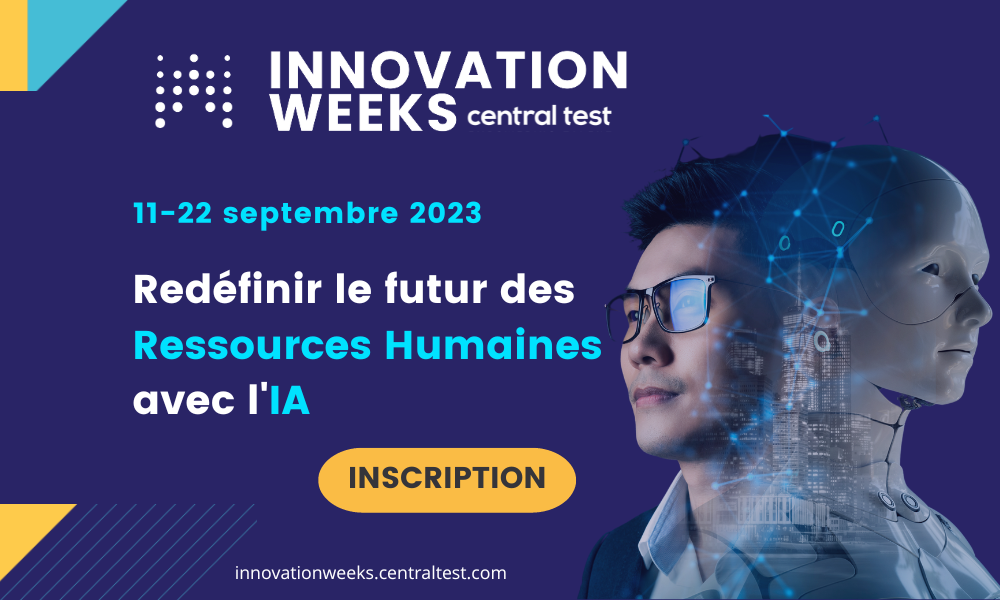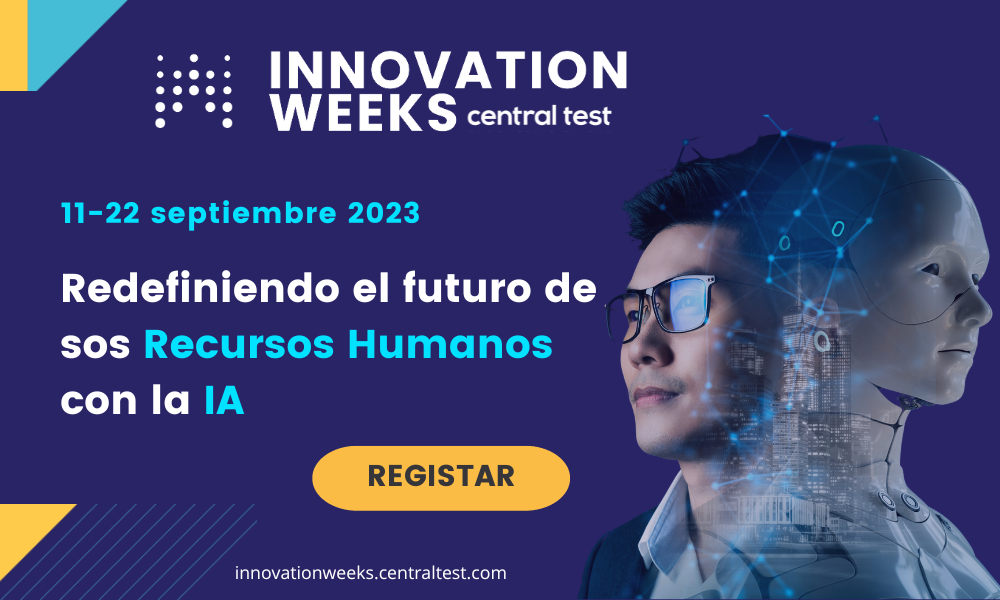What is the predictive model?
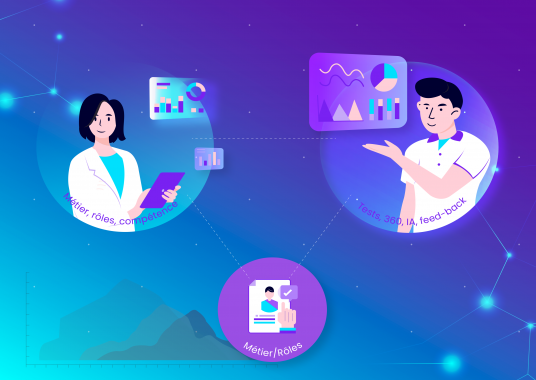
The underlying philosophy of the predictive model is to combine a pragmatic vision, based on the identification of the required competencies, with a scientific vision that is focused on the accurate evaluation of potential. A job matching is then established with a detailed diagnosis of the strengths and weaknesses of the candidate to identify areas for improvement. This allows for predictions that are more reliable and easy to interpret, while ensuring a better candidate experience when the results are presented.
In the current world where jobs are evolving and becoming more and more hybrid, one of the major challenges for HR is to determine the criteria for success in a given job. This is why the predictive model focuses on their common denominator: skills, based on a universal collection of 63 behavioural and cognitive skills.
These skills have been based on regularly updated, extensive datasets which are linked to the international databases O*net and ESCO. Thus, we were able to generate unique competency models for more than 1,200 jobs and 40 functions.

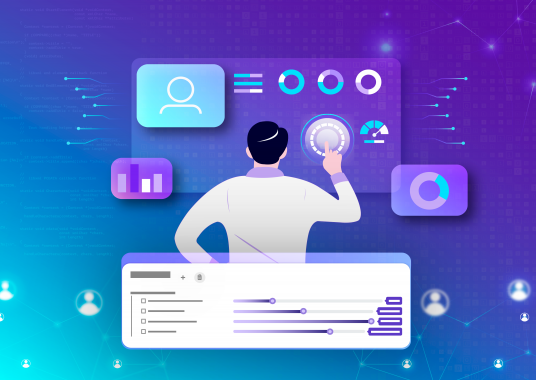
The predictive model allows you to customise your benchmark positions based on a selection of jobs and functions. By integrating these criteria according to your context, our AI program generates a new predictive model that you can optimise and refine at any point. You can also set up your own personalised collection of corporate skills for job positions.
Originally an Internationally recognised publisher of psychometric tests, Central Test has developed and designed more than 20 tests evaluating all the relevant aspects required for identifying talent.
Beyond the descriptive analysis provided alongside the traits measured in our assessments, (e.g. extraversion), the tests predict the skills that will then be used in job matching. Each potential is evaluated by a set of weighted traits, which provides a high level of precision and interpretation.
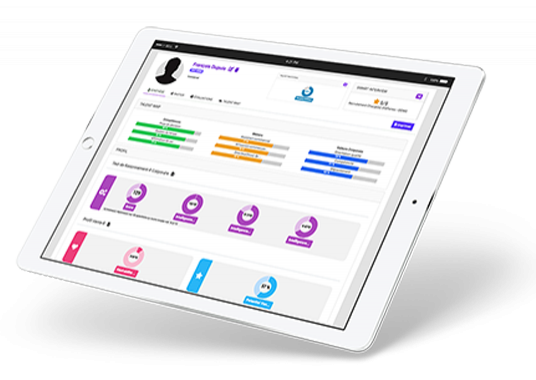

Each psychometric test undergoes several years of research and complies with international validation standards including the International Test Commission (ITC). Our flagship personality assessment, Professional Profile 2, has also been certified by the British Psychological Society (BPS). The assessment manuals are available for our clients on Central Test’s platform. Our tests are regularly revised and incorporate the most advanced technologies and methods including Item Response Theory (for adaptive reasoning tests).
While psychometric tests are currently the most scientifically recognised assessments, Central Test has dedicated several years of research into exploring new ways of assessing skills using AI. This includes using semantic analysis through NLP (Natural Language Processing) to analyse candidates' answers in our deferred video interviews (specifically for questions requiring open-text responses). These insightful analyses are accessible through Smart Interview.
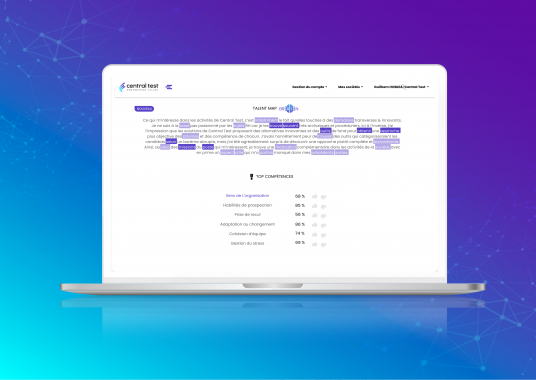
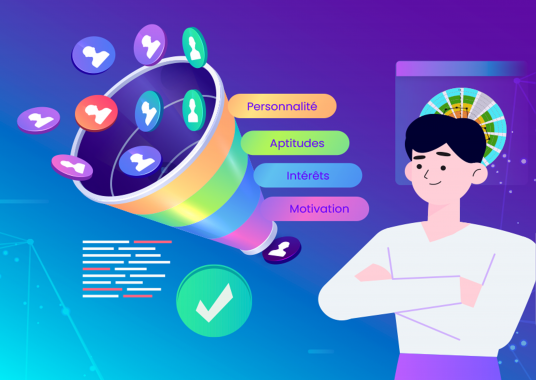
The 360° Feedback assessment tools, which combine different perceptions of an employee's skills, offer a complementary and objective view of your assessments. The data collected around 360° tools or other feedback measures also allow us to enrich our predictions of competencies via psychometric tests and AI programmes.
An assessment is always more accurate when a combination of indices is used. This is why we advocate the combination of several assessment tools to increase the reliability of predictions, although it is always possible to rely on a single reference tool.
In the predictive model, we cross-reference the assessment methods in a systematic way, taking into account their respective level of prediction with respect to each targeted criterion, which leads to better reliability.


Our decisions are subject to numerous cognitive biases that alter our way of thinking, particularly in recruitment, but also in internal mobility. Assessments based on scientific methods enhance objectivity and non-discrimination in our HR decision-making. They also encourage a dialogue with the candidate or employee, which will lead to more informed decisions.
For many test publishers, job matching is established by comparing test traits with a job that corresponds to an ideal profile. However, this can lead to a deterministic view of the candidate's potential, as one either 'fits' or does not fit the job profile.
In the predictive model, we associate the test traits to the competencies that are inferred from them which is then used in the matching process. Regardless of whether traits are facilitating or hindering, we believe that every competency can always be developed and improved.

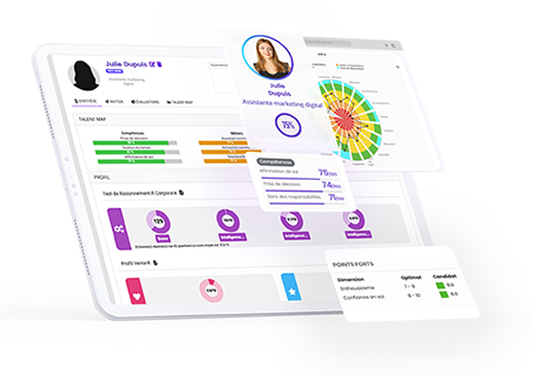
The predictive model is transparent and informative, unlike many other AI matching solutions.
Beyond the score matching, you can see the details of the results based on the skills and associated assessments. You also retain control over the success criteria, which you can change at any time.
The predictive model has been designed to adjust to the natural evolution of skills and the changes within the job market. We regularly update the configurations of the standard models by integrating updates from the O*net and ESCO databases. Additionally, our teams are working on new developments designed to include new success or evaluation criterias.


